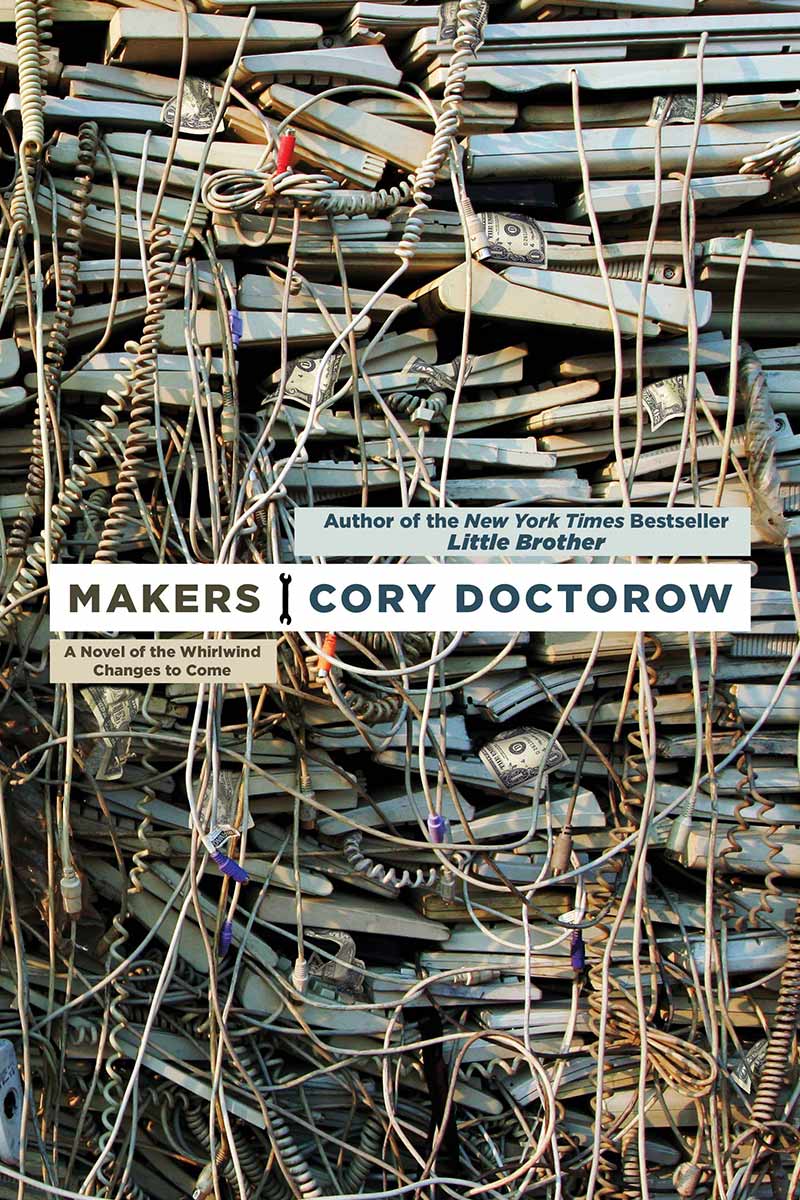Kevin Carson at the P2P Foundation has a great economics-centric review of Makers that really gets into some of the interesting questions raised by the book:
Taken all together, it sounds like an example of what Paul Goodman called “comfortable poverty”: traditional monetary metrics of standard of living, in a time of imploding costs, have limited relevance. The main drawbacks are the uncertainty of property titles (a familiar theme from Hernando de Soto), and the undeveloped social support networks. The lack of adequate healthcare ranks high as an example of the latter concern. But with garage microfactories capable of churning out syringes and IV pumps, and plenty of underemployed MDs at a time when employer-based health insurance (in Doctorow’s scenario) is likely collapsing like a house of cards, the idea of a revived system of “lodge practice,” with decent quality cooperative clinics and even operating theaters run out of storefronts for credit on the shantytown barter network, seems quite plausible.
In their early days the towns of medieval Europe, growing up outside the feudal structure, probably had a flavor something like this. As old villages at strategically situated crossroads and fords began to swell with runaway serfs, and artisans setting up in business for themselves to service the revived commerce, they found themselves in an irregular legal status vis-a-vis the feudal lords in whose territories their town walls technically lay. By building walls and raising militias, federating together, and appealing to the new central governments’ interest in promoting commerce, they were able to compel de jure recognition via royal charters. But state recognition followed from their prior demonstration, on their own, that they were the building blocks of the new society. In fact, until the introduction of artillery capable of battering down town walls, recognition of royal sovereignty by leagues of free towns became very nearly pro forma. That’s the way I learned it from Kropotkin, anyway.



























